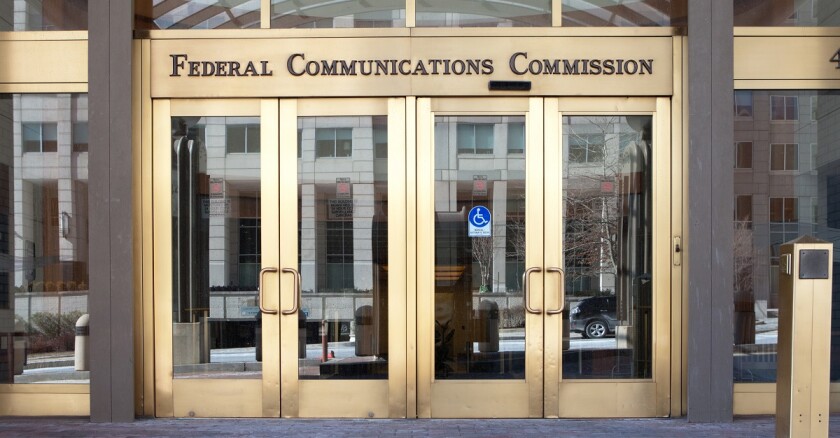- Industry Reacts to Nomination of Anna M. Gomez for FCC Commissioner
- Ohio Program to Train Justice-Involved Individuals for Broadband Workforce
- New York Workforce Program to Improve Older Adults’ Digital Literacy
- Governments Continue Launching Initiatives to Boost ACP Enrollment
- Vermont Kicks Off Digital Equity Plan Creation
INDUSTRY REACTS TO NOMINATION OF ANNA M. GOMEZ FOR FCC COMMISSIONER
This week, President Joe Biden announced nominees to serve as commissioner of the Federal Communications Commission (FCC): Anna M. Gomez, Geoffrey Adam Starks and Brendan Carr. Gomez was nominated for the commissioner seat left open when Gigi Sohn withdrew her name from consideration in March. Sohn was initially nominated in October 2021. Starks and Carr are being renominated.
Gomez is a telecommunications attorney with extensive policy knowledge. She has experience across the public and private sectors. She also serves as a senior adviser for International Information and Communications Policy in the Bureau of Cyberspace and Digital Policy. Her previous experience includes serving as the National Telecommunications and Information Administration deputy administrator and in various positions within the FCC.
Starks has served as a commissioner for the FCC since 2017, after serving as assistant bureau chief of the FCC’s Enforcement Bureau. Carr also currently serves as a FCC commissioner, having started with the agency in 2012.
“Anna Gomez, who previously served in leadership at NTIA, has had a distinguished career and will bring a wealth of experience to the agency,” Assistant Secretary of Commerce for Communications and Information and NTIA Administrator Alan Davidson said, “I congratulate Anna on her nomination, and I hope Congress quickly confirms her.”
“On behalf of NTCA and our members, we look forward to working with [Gomez] once she is confirmed to continue advancing and sustaining broadband connectivity for all Americans,” said National Telephone Cooperative Association CEO Shirley Bloomfield.
Another organization, the Communications Workers of America, also released a statement saying that “Gomez is a dedicated public servant who is highly qualified to serve on the FCC at this critical time. … We urge the Senate to take quick action on this nomination.”
Among stakeholders, the sentiment of urgency in bringing the FCC back to its full working capacity is shared.
OHIO PROGRAM TO TRAIN JUSTICE-INVOLVED INDIVIDUALS FOR BROADBAND WORKFORCE
As the state of Ohio invests in workforce development for the broadband industry, the latest initiative is the Tower Technician Training program, an initiative led by the Governor’s Office of Workforce Transformation and the Ohio Department of Rehabilitation and Correction (ODRC).
This program will help prepare people who are incarcerated and soon to be released for jobs in the telecommunications industry by partnering with employers in the state.
“The mission of our agency is to reduce recidivism, and the best way to do that is to prepare the people leaving our prisons for success,” said ODRC Director Annette Chambers-Smith in an announcement.
This month, eight individuals from correctional institutions will begin to receive training followed by a work-release program. Upon their release, program graduates will have the opportunity to interview with employer partners.
NEW YORK WORKFORCE PROGRAM TO IMPROVE OLDER ADULTS’ DIGITAL LITERACY
As Ohio works to bolster its broadband workforce, New York is looking to address workforce gaps in a different way with the launch of Silver Corps, a pilot program designed to help older adults in the state overcome workforce barriers. These barriers often include ageism in the workforce and skills gaps.
The program will include workshops on digital literacy, financial knowledge and job readiness. Participants must be at least 55 years of age and either unemployed or underemployed. They must be willing to participate in training and certification programs and volunteer at least 10 hours a week at a nonprofit or city agency.
A stipend will be offered to participants during the volunteer portion of the training. The program is funded by AmeriCorps Seniors.
GOVERNMENTS CONTINUE LAUNCHING INITIATIVES TO BOOST ACP ENROLLMENT
New initiatives to boost enrollment in the Affordable Connectivity Program (ACP) have been launched this week in the city of Baltimore and the state of Rhode Island.
Enrollment in the ACP is currently under 35 percent of all eligible U.S. households, and enrollment efforts are continuing as stakeholders call on Congress to continue funding for the program.
In Baltimore, a new campaign called Bmore Connected aims to raise community awareness about the ACP. The campaign is operated through the Baltimore City Office of Information and Technology's (BCIT) Office of Broadband and Digital Equity using grants from The Abell Foundation and the American Rescue Plan Act.
"Simply knowing what resources are available to address the lack of digital inclusion is half the battle for Baltimore residents," Interim Director of BCIT's Office of Broadband and Digital Equity Kenya Asli said in an announcement.
Another initiative to increase enrollment, this one at the state level, was announced this week by Rhode Island Gov. Dan McKee. A virtual mobile assistant launched by the nonprofit will help constituents in the state get real-time enrollment support.
Both initiatives entail partnership with EducationSuperHighway and will involve working with community partners to improve public awareness and get people enrolled.
VERMONT KICKS OFF DIGITAL EQUITY PLAN CREATION
This week, the Vermont Community Broadband Board (VCBB) announced the launch of an effort to create a statewide digital equity plan. This is part of the Broadband Equity, Access and Deployment (BEAD) Program and Digital Equity Act. State digital equity plans are required by the National Telecommunications and Information Administration in requesting planning funds.
VCBB will call for input with specific focus on certain populations: older adults; households with income below 150 percent of the poverty level; people with a language barrier; people in rural areas; veterans; people who are incarcerated; members of racial or ethnic minority groups; people with disabilities; tribal populations; LGBTQ+ people; people who are unhoused; and migrant farm workers.















